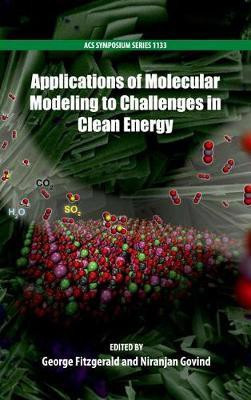Applications of Molecular Modeling to Challenges in Clean Energy(English, Hardcover, unknown)
Quick Overview
Product Price Comparison
As the world struggles with global climate change, rising oil costs, and increasing energy demands, it has become critical to search for alternative energy sources, more efficient chemical processes, and more environmentally benign materials. Computational methods-including molecular modeling and scientific informatics-have already made significant contributions to this area. Improved solar cells, more stable PEM fuel cells, and longer-lived batteries are just someof the outcomes.This book is a collection of scientific topics on "Applications of computational methods to environmentally sustainable solutions." The chapters cover a broad spectrum of applications of computational approaches to environmentally sustainable solutions. The various topics covered include batteries, biomass conversion, catalysis, CO2 capture and sequestration, fuel cells, H2 generation and storage, improved chemical processes, and photovoltaic materials. With the significant advances in modelingtechniques and simulation tools over the last decade, real-world materials and complex chemical processes in realistic environments can now be studied in silico and directly compared with experimental data. This has spawned rapid growth in the rational design of new materials and the study ofcomplex mechanisms for energy applications.


